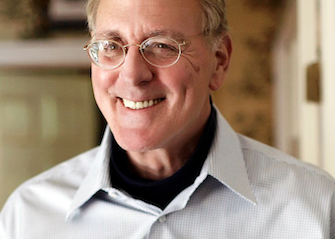Winston Groom’s Writing “A Trust to the Exceptional”
Winston Groom, who died on Thursday this week at the age of 77, is best known as the author of Forrest Gump, whose titular character became a beloved icon following Tom Hanks’ Oscar-winning movie portrayal. But Civil War buffs might also know Groom’s excellent nonfiction trilogy about the western armies in the Civil War:
- Shrouds of Glory: From Atlanta to Nashville: The Last Great Campaign of the Civil War (1995)
- Vicksburg, 1863 (2010)
- Shiloh, 1862 (2012)
Forrest Gump overshadowed pretty much overshadowed everything else Groom wrote, but as Dr. Rick Frederick wrote in an essay in our ECW collection Entertaining History: The Civil War in Literature, Film, and Song, “There’s More to Groom Than Gump.” Rick’s essay focused on Groom’s Civil War trilogy. “Each of the Civil War books is meticulously researched…” Rick says, adding “there are no stuffy moments…. Each book is replete with heroes and goats, searing descriptions of battle, and clear explanations of strategies and tactics, of what went right, what went wrong, and why.”
Groom wrote a number of history-based nonfiction works, with a joint biography of Hamilton, Jefferson, and Adams due this coming November. One of his earliest works, Better Days Than These, was a finalist for the Pulitzer.
Those who love Forrest Gump can even find a Civil War connection there. As Forrest explained in the book, he was named after Confederate general Nathan Bedford Forrest:
Mama always said we was kin to General Forrest’s fambly someways. An he was a great man, she say, cept’n he started up the Ku Klux Klan after the war was over an even my grandmama say they’s a bunch of n0-goods. Which I would tend to agree with…. So whatever else ole General Forrest done, startin up that Klan thing was not a good idea—any idiot could tell you that. Nonetheless, that’s how I got my name.
In his essay about Groom’s Civil War books, Rick Frederick points out that Groom ends his book on Shiloh with a quote that might now stand as a testament to Groom’s own career as a writer:
When they [Civil War veterans] were gone, the trust they passed along remained exceptional in the American character, a willingness to fight, and to die if necessary, for ideas instead of conquest and territory, and for ideals rather than plunder and pillage—an exalted distinction by any measure.
Groom’s writing remains as a trust to the exceptional in the American character.
————

1 Response to Winston Groom’s Writing “A Trust to the Exceptional”